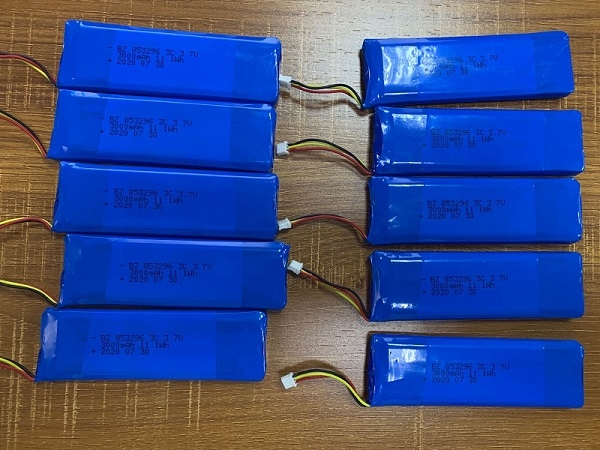1. According to the actual use
Large-scale energy storage: Generally, comprehensive factors such as environmental protection, service life, and floor space are involved. Generally, it is recommended to use lithium iron phosphate battery cells, especially large-capacity lithium iron phosphate batteries;
Small energy storage: generally 26650, 32650 lithium iron phosphate battery cells can be selected;
Small power: Generally, you can choose the same battery as the small energy storage, or you can choose a relatively safe ternary material system battery; you can take into account the volume ratio energy and weight ratio energy issues;
Portable products: generally use 18650 ternary system batteries; polymer lithium cobalt oxide battery cells can be considered for higher energy requirements.
Smart wearable products: Generally, it is better to use batteries with the same size and small internal resistance, which can better display the design capacity and meet the requirements of use.
Special field batteries: ask battery experts to suggest which one is more reasonable.

2. Discharge rate
For ordinary products, use products with a general discharge rate not exceeding 0.5C, and use ordinary formula lithium-ion batteries.
When the product uses more than 1C discharge, generally the life of the product and the use environment should be considered; especially the charging environment, generally the charging current of lithium-ion batteries should be derated under high and low temperature conditions, that is, the battery should be less than 1C. Under high and low temperature conditions, the charging current is generally less than 0.2C to be ideal.
Lithium-ion batteries with a discharge exceeding 2C are called rate-type batteries; generally, special formulas are required to meet the requirements. If ordinary batteries are used, it will lead to poor life and safety hazards.
Generally speaking, batteries with a magnification rate of more than 5C do not have a long service life, generally not exceeding 100 cycles. With the further development of technology, subsequent products may increase the product life, but generally other technical indicators are sacrificed at the same time. Model airplanes, drones, and batteries in special fields have high-rate requirements. A battery with a relatively short instant discharge time is not considered a high-rate battery.
3. Temperature environment
Batteries are used according to different temperature environments and are divided into three categories: high temperature batteries, low temperature batteries, and conventional batteries; general high temperature batteries refer to storage at high temperatures and generally do not discharge. If there is a discharge requirement, The product should not exceed 65 degrees or 70 degrees. In general, high temperature charging will also exist when discharging in high temperature environments. For example, driving recorder batteries are not only discharging at high temperatures. The general designer does not understand the battery and does not limit high temperature charging. At this time, the destructive effects of high-temperature charging on the battery are the most deadly. It also caused the bulging of such batteries and even other undesirable conditions. If the motherboard can be designed for high temperature protection, it can bring benign use conditions to the lithium-ion battery. Generally, it is recommended to set the high-temperature discharge protection at 70 degrees; the high-temperature charging protection at 55 degrees is more appropriate. Although the lithium-ion battery is charged, 0~45 degrees, but in the range of 45~55 degrees, if low current charging is not a big problem, it is generally considered safe.
4. Use the lower limit voltage of the platform
Generally refers to the lower limit voltage of electrical appliances. When we select batteries, we fully consider the voltage range of electrical appliances so that lithium-ion batteries can be fully used. Therefore, when choosing a lithium-ion battery, you must first understand which voltage range your product should use, and choose a lithium-ion battery with the correct voltage range to make the entire product design more reasonable.
5. Cooperate with charging system
The charging management system for lithium-ion batteries is very important. A strict constant current and constant voltage charging mode must be installed. If charging is performed beyond this mode, the product will not get a good charging effect, which will eventually affect the service life, and it may be serious. Will cause safety issues. Generally, the design of lithium-ion batteries is safe, and improper use and charging are high-prone areas for lithium-ion battery safety problems.
6. Is the battery with high specific energy necessarily good?
It is better to use high specific energy batteries before they are officially used in batches after the actual test life; high specific energy batteries must be verified before they can be put into use. This process is required for any product. Generally, high specific energy batteries designed by battery manufacturers will sacrifice other performance. No product is perfect. If the sacrificed battery short board is just what you need, then you can’t consider the original design. To redesign and revalidate.
7. The similarities and differences between energy storage batteries, high rate batteries, and conventional batteries
Generally speaking, UPS energy storage batteries must take into account the rate performance; most UPSs are temporarily used as a temporary alternative to the mains for 5-10 minutes, which means that the battery generally needs to be discharged at a rate of 5-10C to meet the requirements. We must remember Don't think that you don't usually use batteries and you should be careful when designing products.




